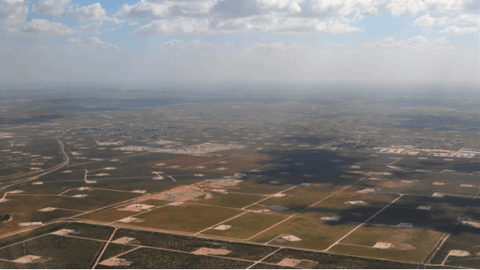Santos has announced that it has signed a Memorandum of Understanding (MOU) with the Timor-Leste regulator Autoridade Nacional do Petróleo e Minerais (ANPM) to progress Carbon Capture and Storage (CCS) at Bayu-Undan in the Timor Sea.
The MOU is said to detail the areas the Bayu-Undan joint venture and the ANPM, with the support of the Timor-Leste government, will work on collaboratively to test the viability of repurposing existing facilities and using the Bayu-Undan reservoir for CCS. This includes sharing technical, operational and commercial information, assessing the regulatory framework, evaluating local capacity opportunities and establishing a decision timeline, according to Santos.
“We believe the Bayu-Undan reservoir and facilities have the potential to be a world leading CCS project and we are delighted to be working together with the ANPM and the Timor-Leste government to progress this opportunity,” Santos Managing Director and Chief Executive Officer Kevin Gallagher said in a company statement.
“CCS is recognized by the International Energy Agency and the Intergovernmental Panel on Climate Change as being a critical technology to achieve the world’s climate goals. Santos’ experience with the globally competitive Moomba CCS project in outback South Australia will bring invaluable experience to the project,” he added.
“CCS at Bayu-Undan has potential capacity to safely and permanently store approximately 10 million tons per annum of CO2 and could build a new job-creating and revenue-generating industry for Timor-Leste,” Gallagher went on to say.
Commenting on the development, ANPM President Florentino Soares Ferreira said, “this is a milestone for Timor-Leste”.
“With the signing of the CCS MOU between Santos, representing its joint venture partners, and ANPM proves that Timor-Leste is proactively taking the lead in integrating its oil and gas sector towards Timor-Leste’s commitment of accelerating decarbonization and meeting the U.N. net zero target by 2050,” Ferreira added.
“Despite Timor-Leste being one of the lowest emission countries in the world, and that the Paris Agreement provides waiver or concession to the developing and less developed nations such as Timor-Leste; we understand that carbon trading or carbon credits market is an integral part of our future economy. We don’t want to miss this opportunity; and I believe this will become one of the largest CCS projects in the Southern Hemisphere,” he continued.
The Bayu-Undan facility, which is located approximately 310 miles north-west of Darwin in Timor-Leste offshore waters, supplies gas to the Darwin LNG plant via a 26-inch subsea pipeline, Santos’ website highlights. The facility includes a central production and processing complex with a Floating Production Storage and Offloading vessel for condensate and LPG products and an unmanned wellhead platform. The Barossa gas field will be the source of gas to backfill Darwin LNG when Bayu-Undan ceases production, Santos revealed.
In January this year, Santos announced a Final Investment Decision for the $235 million Phase 3C infill drilling program at the Bayu-Undan field, which comprises three production wells and will develop additional natural gas and liquids reserves, extending field life as well as production from the offshore facilities and the Darwin LNG plant. At the end of July, Santos noted that production from the Phase 3C infill drilling program had begun with the first well producing a better than anticipated outcome.
Santos has a 43.4 percent operated interest in Bayu-Undan, with the remaining interests held by SK E&S (25 percent), INPEX (11.4 percent), Eni (11 percent) and Tokyo Timor Sea Resources (9.2 percent).
To contact the author, email andreas.exarheas@rigzone.com
#Santos #ANPM #Sign #MOU #Progress #Timor #Sea #CCS
Tags: ANPM CCS Coastal Flow Coastal Flow Measurements Coastalflow MOU oil and gas petroleum news events stories articles analysis commentary headlines stocks finance commodities maps pictures Progress Santos Sea Sign Timor








